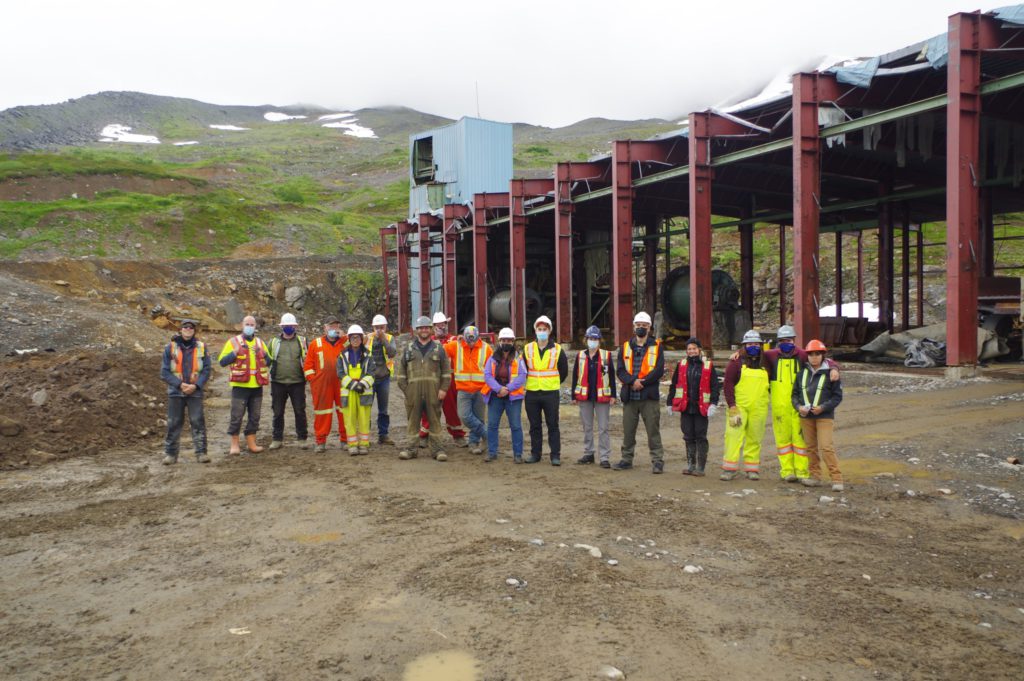Seabridge, Copper Mountain recognized for mine reclamation work in B.C.


The British Columbia Technical and Research Committee on Reclamation (TRCR) has announced the winners of the this year's B.C. mine reclamation awards. These awards were presented at the TRCR’s 45th annual Mine Reclamation Symposium on Wednesday evening.
Taking home the Jake McDonald annual mine reclamation award is Seabridge Gold, which was recognized for its work at the past-producing Johnny Mountain gold mine that operated in the late 1980s. The work is part of the company's $12 million environmental and reclamation program that it is voluntarily undertaking with the Tahltan Nation at the 100%-owned Iskut project in northwest B.C.
“Seabridge Gold has shown great leadership in its ongoing efforts to reclaim an inherited site with a high level of indigenous nation support and involvement,“ says Tim Antill, outgoing chair of the TRCR and chair of the awards subcommittee.
Since acquiring Snip Gold and its mineral tenures that included the former Johnny Mountain mine in 2016, Seabridge Gold has worked to return disturbed lands and anthropogenic landforms to their original land use and capability of alpine tundra wildlife habitat. The environmental and reclamation activities completed at the Johnny Mountain mine were recognized because of the timely implementation of the site activities, and for the company’s commitment to work with indigenous partners to ensure all site environmental and reclamation activities, which are on the traditional territory of the Tahltan Nation, have both Indigenous input and approval.
"It's a great honour to be recognized with the prestigious Jake McDonald annual mine reclamation award, which further validates our reputation as a ‘responsible operator’ and our commitment to protect the environment," said Rudi Fronk, Seabridge Gold's chair and CEO.
Seabridge is expected to complete the full reclamation and closure of the Johnny Mountain mine site in 2025.
The metal mining category award was given to Copper Mountain Mining for its channel realignment of Wolfe Creek and implementation of fish habitat offsetting sites consisting of five components to improve fish productivity and one site to improve fish passage.
In 2019, Copper Mountain initiated work to realign a section of Wolfe Creek around its flagship mine in southern B.C. near the town of Princeton. The company also developed plan to a provide a new higher quality fish habitat to offset a portion of the creek that was fish-bearing. The reclamation work consisted of soil applications, seeding and planting trees and shrubs. In 2021, an initial effectiveness evaluation was conducted and indicated that the habitat suitability index values were above average to excellent.
Concurrent with the industry recognition for its reclamation work, Copper Mountain has also formalized its sustainability initiatives dating back to its inception by releasing the company's inaugural environmental, social and governance (ESG) report.
The coal mining category award went to Teck Resources for its unique approach to assessing baseline environmental conditions, developing ecosystem and habitat models using historic and current geospatial data, and ongoing reclamation monitoring.
The Tony Milligan book award was presented to Jeff Anderson, Melissa Iverson and Ben Pearse of Integral Ecology Group for its paper, “Applications for remote sensing by unmanned aerial vehicles in reclamation monitoring,” presented online at last year's Mine Reclamation Symposium.
For more details on these awards and the Mine Reclamation Symposium, visit trcr.bc.ca.
Comments